You are using an out of date browser. It may not display this or other websites correctly.
You should upgrade or use an alternative browser.
You should upgrade or use an alternative browser.
I’m not even Haitian but this fake story and how conservatives and right wing politicians just went all in on the Haitian community got me fukked up.
- Thread starter Anerdyblackguy
- Start date
More options
Who Replied?
Uncertainty in Springfield, the Ohio town put on the map by Trump’s false claims about immigrants
Residents in Springfield, Ohio, are trying to move on after Trump’s rhetoric about Haitian migrants. Some now worry he could make an example of them.
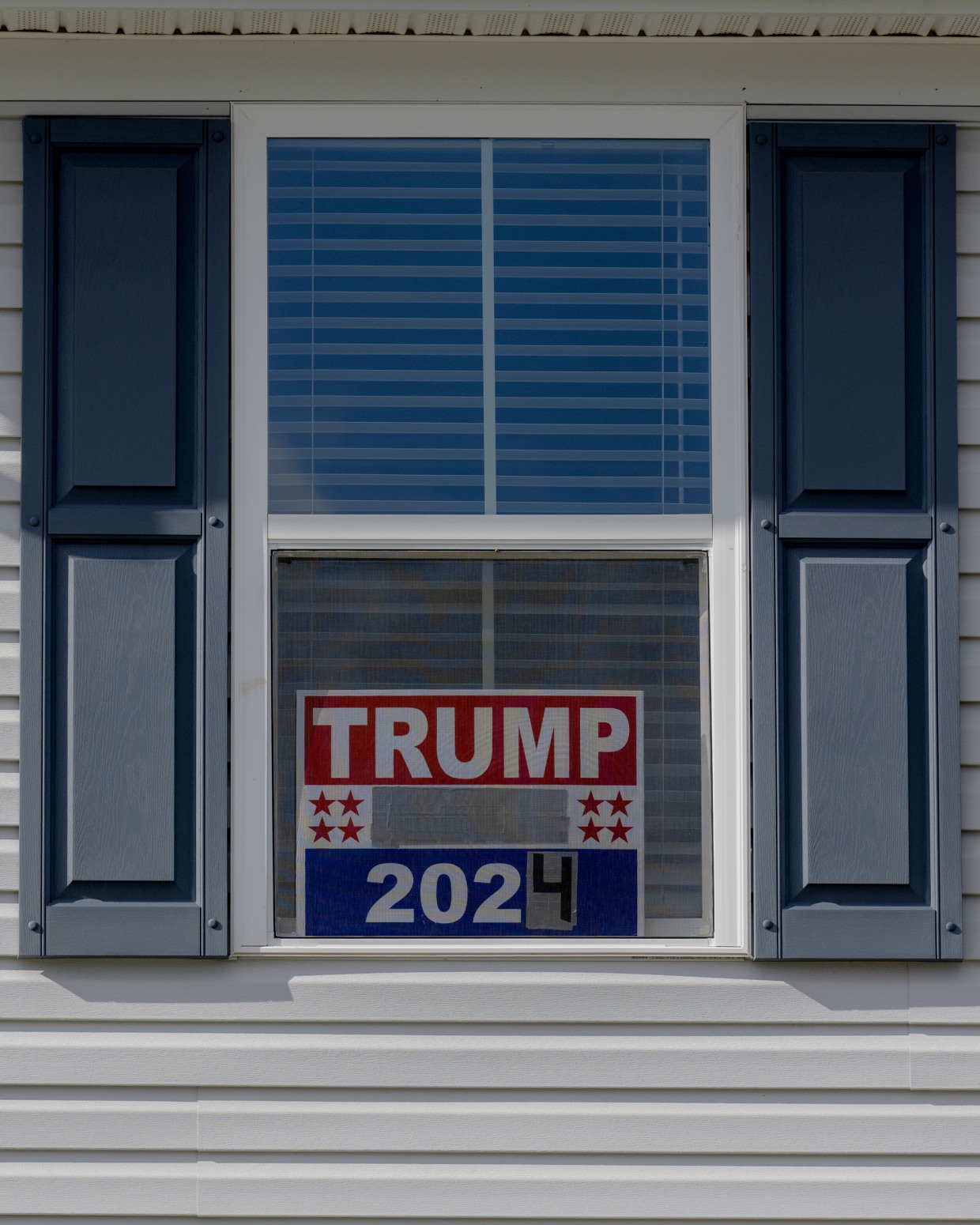
Uncertainty in Springfield, the Ohio town put on the map by Trump’s false claims about immigrants
Residents in Springfield, Ohio, are trying to move on after Trump’s rhetoric about Haitian migrants. Some now worry he could make an example of them.
Nov. 16, 2024, 8:00 AM EST
By Alicia Victoria Lozano
SPRINGFIELD, Ohio — In the months leading up to Election Day, political signs and billboards dotted much of the landscape surrounding this town in southwestern Ohio. By that weekend, many were gone.
Residents, tired and frustrated after their hometown became a national flashpoint in the election over immigration, were trying to move past the intense scrutiny and refocus on the future.
“It is what it is. We have to live with it,” Jean Philistin, a Haitian resident of Springfield, said of Donald Trump’s victory. “The American people, they wanted him and they elected him.”
Only a couple of months ago, Trump and his running mate, Sen. JD Vance of Ohio, helped perpetuate false rumors about Haitian residents in Springfield eating pets and local wildlife even after city and county officials denied the claims.
The city became a kind of parable of the strains that accompany a sudden influx of migrants, such as rising rents and longer wait times for medical and social services, making Springfield fodder for pro-Trump partisans who then used racist claims to bring it to a national audience.
After the election, NBC News returned to the town and spoke with more than a dozen residents who offered a mix of hope and fear about the weeks, months and years to come. Mostly, they were hesitant to talk about the election even after its decisive conclusion.

Philistin, who became an American citizen two years ago and voted for the first time, remains unsettled by the election results. He voted for Vice President Kamala Harris and has relatives in New Jersey who voted for Trump.
He said they were attracted to Trump’s economic policies, but his rhetoric on immigration went too far for Philistin, and he said he fears they don’t understand how some of Trump's policies could impact other Haitians.
On election night, Philistin was glued to the TV, he said. A week later, he wondered how a Trump White House will affect his community.
“I’m nervous, but I’m not upset,” he said.
Support for Trump did not waver in the reliably conservative Clark County despite his false claims about Springfield.
Trump won 64% of the vote in the county, up from 61% in 2020. Fueled by economic concerns, a red wave walloped Democratic lawmakers across Ohio. Longtime U.S. Sen. Sherrod Brown, who has held his seat since 2007, lost to newcomer and Trump ally Bernie Moreno.
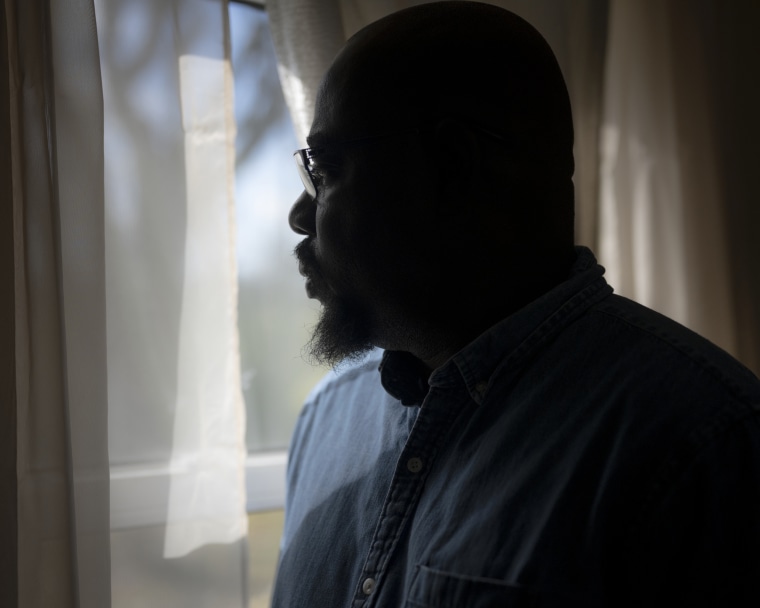
Christian Jordan, who was born in Venezuela and moved to Springfield some 20 years ago, said he voted for Trump despite the president-elect’s sometimes bombastic descriptions of his native country and his adopted home. A self-described “big supporter of the Republican party,” Jordan said Trump’s economic policies outweigh his hyperbole.
“Maybe the representation isn’t perfect, but it’s politics,” he said. “You’re able to kind of look past it.”
Last Saturday, Jordan attended an Ohio State University football game and attendees joked about Springfield residents eating cats, he said. He laughed along with everyone else but lamented Springfield’s newfound reputation as undeserved.
“That’s not how you want to be remembered as a town,” he said. “Springfield is trying very hard to continue to move on.”
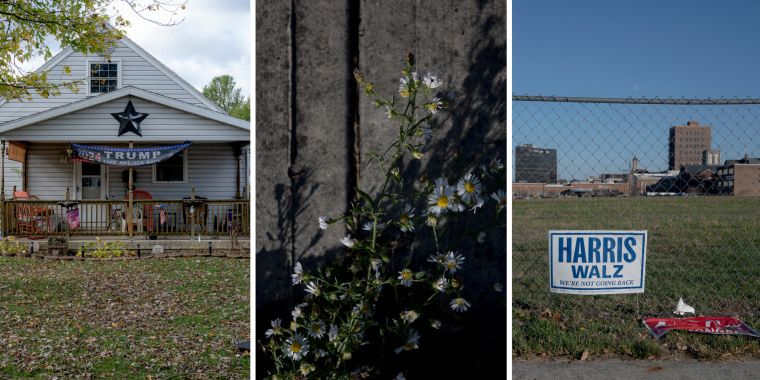
A community in limbo
The Haitian community’s presence in Springfield has grown significantly over the past five years, with an estimated 12,000 to 15,000 new residents arriving to escape political turmoil and violence in their home country, according to the city.
Many are here under federal humanitarian programs, while others hold green cards or tourist visas. They have purchased and rented homes, opened businesses and filled labor gaps in industries such as manufacturing.
Residents and officials agree that it would be bad for business if Trump makes good on his promise to carry out the “largest deportation in the history of our country,” starting with Springfield.
On Sunday, the president-elect announced immigration hard-liner Tom Homan, who once backed a “zero tolerance” policy that caused family separations, as his pick for “border czar.”
“It would be a mistake,” Lindsay Aime, a Haitian immigrant who has temporary protected status until 2026, said of the deportation plan. “All the businesses across Springfield, if you lose good, beautiful workers, you will feel it economically.”
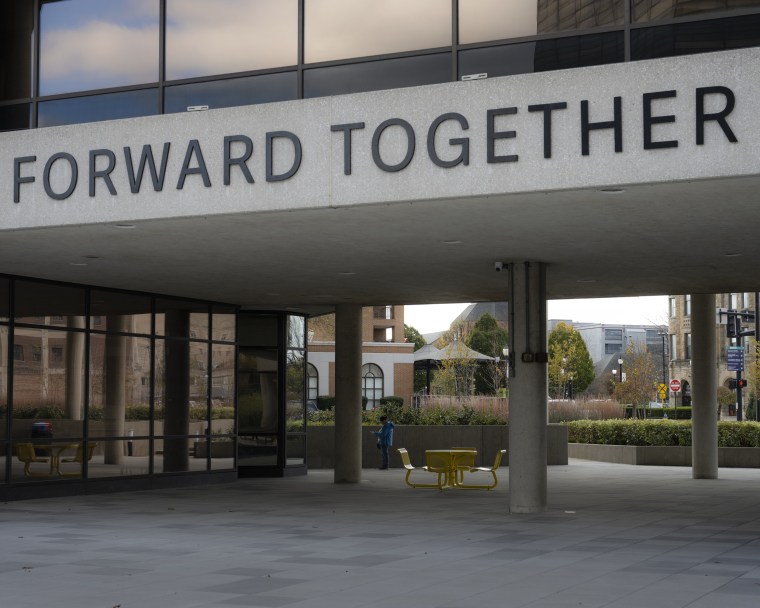
Trump made his mass deportation promise in September, and his transition team has said it is considering ending two Biden administration programs that have allowed more than 1 million immigrants to legally enter the U.S.
Migrants who arrived in the U.S. legally under the current programs, including from Haiti, may be immune from deportation if they have already been granted asylum or are on the path toward it, or have another legal status to stay in the United States.
According to city officials, the vast majority of Haitian residents in Springfield have legal status. Vance has suggested that Biden’s immigration policy is bogus and that many Haitians in Springfield are fair game to be deported.
The Trump transition team did not respond to a request for comment.
The morning after the election, a handful of local leaders activated their networks of advocates, organizers and officials. Everyone had the same question about Trump.
“Would he make an example of us?” asked Carl Ruby, senior pastor of Central Christian Church.
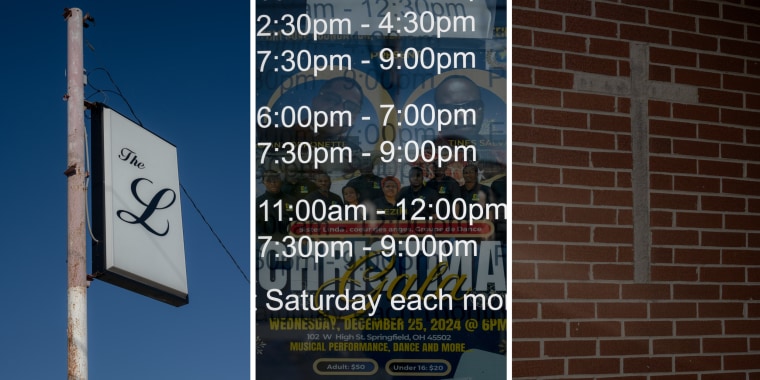
Questions in the aftermath
On Sunday, a stream of more than 100 people poured out of the Haitian Community Help and Support Center, which doubles as a church. Some families celebrated baptisms while others chatted in Creole.
Sitting in the back of a large room, Julio Dumano reflected on the last week.
“We were very scared at first because they promised to deport us, but maybe they will change their minds,” he said, repeating a refrain shared by several Haitian residents. “As a good Christian, we will pray and see what happens next.”
Some Haitians have already left the area, he said, frightened off by the rumors and vitriol that accompanied the negative attention in recent months. Because there is no official accounting for how many Haitians moved into the area, the city does not know how many have left.
When asked to comment on the exodus, Mayor Rob Rue nodded in apparent disappointment.
“That didn’t make me feel good,” he said. “It wasn’t the goal.”
The goal in Springfield has always been to boost the population and stimulate the economy after a long period of stagnation, officials have said. The county incentivized companies to create jobs, which attracted a first wave of Haitian immigrants.
Clark County Commissioner Melanie Wilt, who was born and raised in the area, said this is the first time in her life that she has seen so many new businesses, housing subdivisions and young families move to Springfield. The county will keep pursuing that mission under the Trump White House, she said.
“The biggest impact of the administration was already made,” she said, referring to Trump and Vance’s immigration rhetoric. “We remain on standby for whatever comes next.”
During the last Trump administration, several municipalities created sanctuary city policies in an attempt to curb deportations. Some within Springfield’s activist network wondered if they could duplicate similar efforts here.
Rue, who is a Republican but whose office is nonpartisan, immediately dismissed the idea when asked about it, saying he would continue to follow federal policy under the incoming administration.

Advocates for the Haitian community are looking into options for extending the federal government’s temporary protected status for Haitian residents, but it remains unclear whether that would provide any guardrail against the Trump deportation plan.
“We have to proceed with caution and move forward while looking over our shoulder,” said Denise Williams, president of Springfield’s NAACP chapter.
Sitting outside City Hall, Rue said he was frustrated by the negative attention cast on his community and is grateful the election is over. He bristled when asked if he’s concerned Springfield will be a target in the new administration.
“You know, there are contributing, tax-paying immigrants that are here in our community,” he said. “I would hope that the administration does see the benefit.”

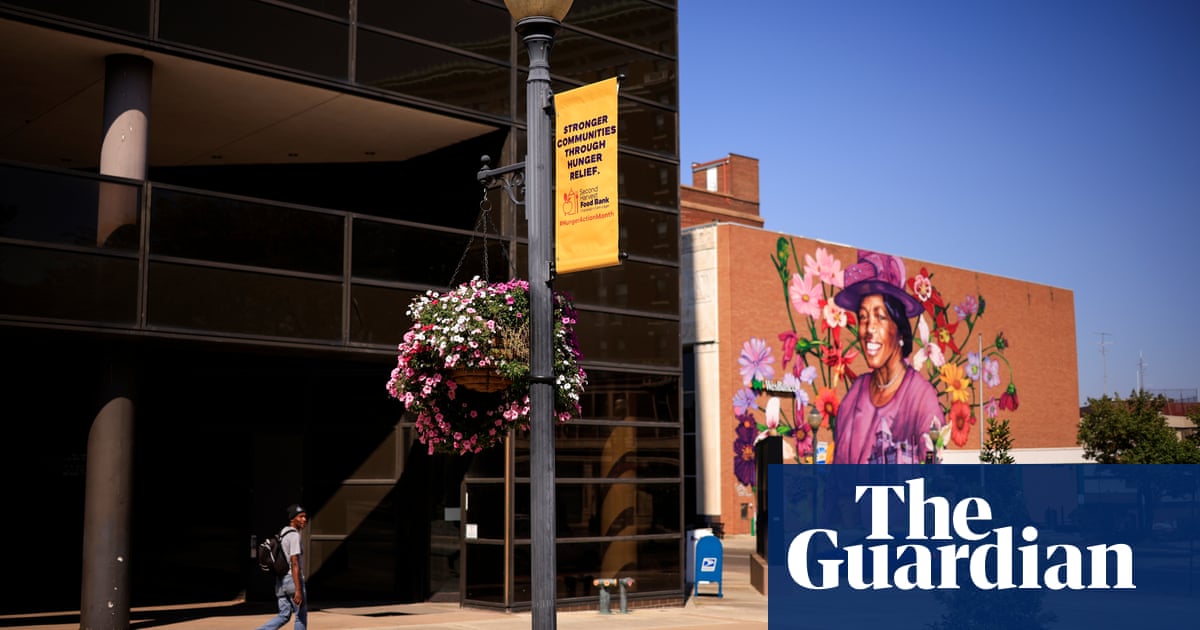
Haitian immigrants flee Springfield, Ohio, in droves after Trump election win
City subjected to false rumors from Trump loses residents integral to community over mass deportation fears
Haitian immigrants flee Springfield, Ohio, in droves after Trump election win
City subjected to false rumors from Trump loses residents integral to community over mass deportation fears
Stephen Starr in Springfield, Ohio
Sun 17 Nov 2024 09.00 EST
Share

Springfield, Ohio, in September. Photograph: Luke Sharrett/Getty Images
From a tiny office behind a Haitian grocery store on Springfield’s South Limestone Street, Margery Koveleski has spent years helping local Haitians overcome bureaucratic red tape to make their lives in the Ohio city a little bit easier.
But Koveleski – whose family is Haitian – has noticed a major change recently.
Haitians are now coming to her to figure out how to leave.
“Some folks don’t have credit cards or access to the internet, and they want to buy a bus ticket or a plane ticket, so we help them book a flight,” she told the Guardian recently. “People are leaving.”
Koveleski, leaders in Springfield’s Haitian community, and others have relayed reports of Haitians fleeing the city of 60,000 people in recent days for fear of being rounded up and deported after Donald Trump’s victory in the 5 November presidential election.
“The owner of one store is wondering if he should move back to New York or to Chicago – he says his business is way down,” Koveleski remarked.
Trump has repeatedly said he would end immigrants’ temporary protected status (TPS) – the provision through which many Haitians are legally allowed to live and work in the US – and deport Haitians from Springfield once in office.
For many, the threats are real.
A sheriff in Sidney, a town 40 miles (64km) north-west of Springfield that is home to several dozen Haitian immigrants, allegedly told local police in September to “get a hold of these people and arrest them”.
“Bring them – I’ll figure out if they’re legal,” he said, referencing Haitian immigrants in the area.
As Jacob Payen, a co-founder of the Haitian Community Alliance who runs a business that includes helping Haitians in Springfield to file tax returns, said: “People are fully aware of the election result, and that is why they are leaving; they are afraid of a mass deportation.
“Several of my customers have left. One guy with his family went to New Jersey; others have gone to Boston. I know three families that have gone to Canada.”
Some are thought to have moved to nearby cities such as Dayton, where they believe they would be less visible to law enforcement. Others who had temporary asylum in Brazil are pondering going back to the South American country, community leaders say.
Springfield’s Haitian community has been in the spotlight since Trump falsely accused immigrants here of eating pets during a presidential debate in September. Since then, the city has seen false bomb threats and marches by neo-Nazi groups after having experienced a revival in recent years in large part because of Haitians who took jobs in local produce packaging and machining factories that many previously there found undesirable.
If these people leave, that money is gone from the city and the local economy
Jacob Payen, Haitian Community Alliance co-founder
Unofficial results from the presidential election found that Trump beat Harris by fewer than 150 votes in Springfield despite his making false claims about immigrants in the Ohio city a cornerstone of his anti-immigration election campaign.
A policy that has been around since 1990, the TPS program currently sees more than 800,000 immigrants who have fled conflict or humanitarian emergencies in 16 countries to live and work legally in the US for a limited time. About 300,000 Haitians fleeing widespread violence in the Caribbean country have been authorized to remain in the US through TPS until at least 3 February 2026.
But while it once enjoyed support from both sides of the political aisle, Trump’s first term saw a California court rule in 2020 that his administration could end TPS for citizens of Haiti and three other countries.
TPS is granted – and often renewed – by the secretary of homeland security. On Tuesday, reports emerged that Trump had chosen to give the post to the South Dakota governor, Kristi Noem, who has deployed state national guard troops to the US-Mexico border several times in recent years.
Trump’s deportation threats are happening at a time when Haiti is experiencing renewed violence from politically connected gangs. The country’s main airport in Port-au-Prince has been closed periodically and was shuttered again on Tuesday after gunfire hit a commercial passenger airplane flying in from the US. That was the second time since October that gunfire had hit an aircraft over Haiti.
Though Trump may ultimately succeed in ending TPS for some immigrants, some legal experts believe that is unlikely to happen during the early days of his administration after his second presidency begins on 20 January.
“There’s a fear among the Haitian community that TPS is going to end on 20 January, and I don’t think that is very likely for a number of reasons,” said Katie Kersh, a senior attorney at the non-profit law firm Advocates for Basic Legal Equality.
“The strain any deportation effort would place on an already stretched immigration court system would be significant.”
Even if the program was ended, Kersh says, current law allows for a court hearing that could take months or years to take place. Similarly, immigrants who have asylum applications filed also have an opportunity to have that application heard.
By ending TPS, Trump could in fact make the issue of undocumented immigration even worse.
“TPS provides employment authorization and a right to reside in the US, so when a TPS grant ends, the people who have it immediately lose employment authorization unless another status which provides it is available to them,” said Ahilan Arulanantham of UCLA’s School of Law, who was among several lawyers to successfully challenge an earlier attempt by Trump to end TPS for Haitians as well as others in 2018.
“That effect occurs regardless of whether they later face deportation.”
The strain any deportation effort would place on an already stretched immigration court system would be significant
Katie Kersh, senior attorney
For companies in Springfield and in nearby communities that depend on Haitian labor, Trump’s comments could prove damaging. The Haitians who filled thousands of jobs at area packaging and auto plants have helped rejuvenate once-blighted neighborhoods and contributed to the local economy in myriad ways.
While many food products lining the shelves of Springfield’s Caribbean stores are imported, many items – bread from Florida and pinto beans from Nebraska – are American. Chicken, beef and eggs served at Haitian restaurants are regularly sourced from local farms.
Recently, a Haitian community organization bought a former fire station it hopes to turn into a facility for English language classes, drivers’ education and a meeting spot.
“I pay thousands of dollars in income and property taxes every year,” said Payen, “and – because I work with Haitians to file their taxes – I see their W-2s and so on. If these people leave, that money is gone from the city and the local economy.”
Curiously, some Haitians, who do not have the right to vote unless they are citizens, have blamed prominent Democrats such as Bill and Hillary Clinton for destroying their country after a devastating 2010 earthquake killed about a quarter of a million people – and displaced in excess of a million more.
Their Clinton Foundation, which ran dozens of projects in the country, had helped raise billions of dollars to assist with reconstruction efforts. But many Haitians believe the funds were siphoned off, which the Clintons deny.
Huge numbers of US guns havebeen trafficked to Haiti in recent years – a fact that is not lost on some in the Springfield community, according to Koveleski.
“They don’t have any faith in the Democratic party,” she said. “Some believe that if Donald Trump says, ‘leave Haiti alone,’ he’s going to leave us alone.”
Explore more on these topics
Similar threads
- Replies
- 42
- Views
- 3K

